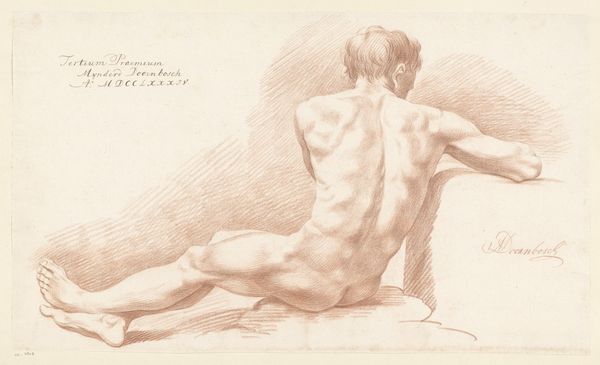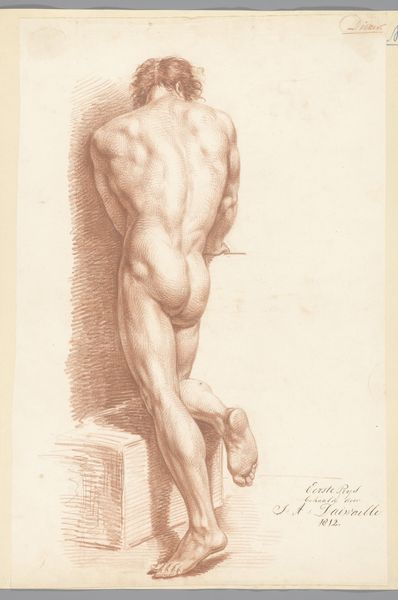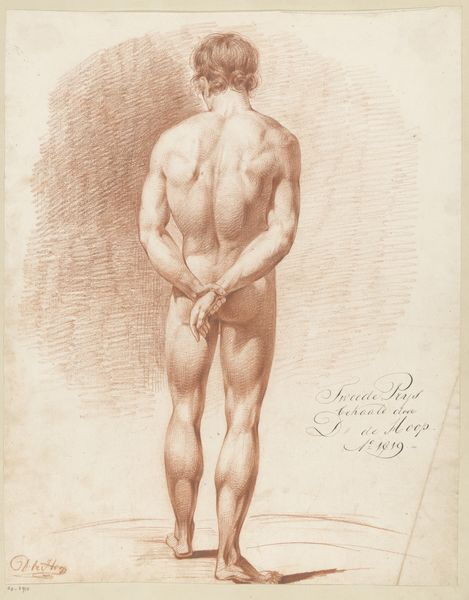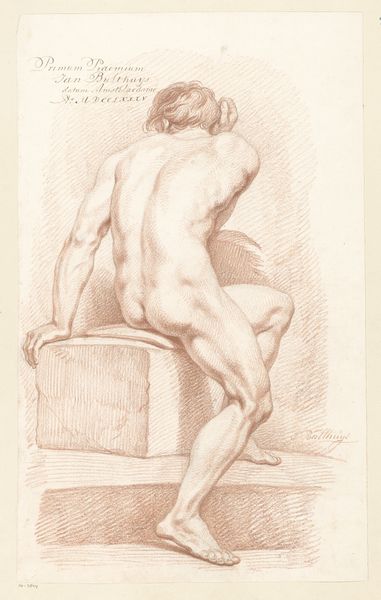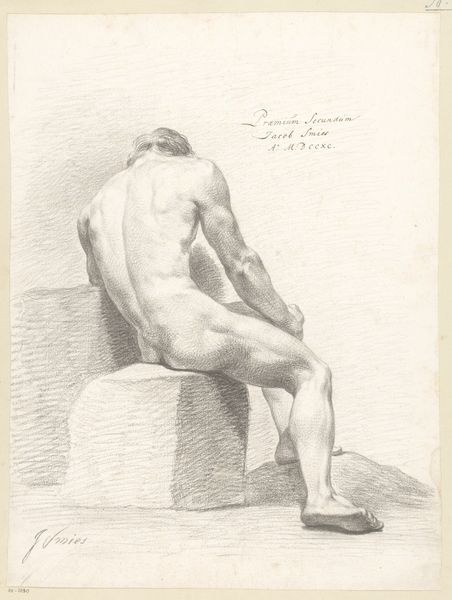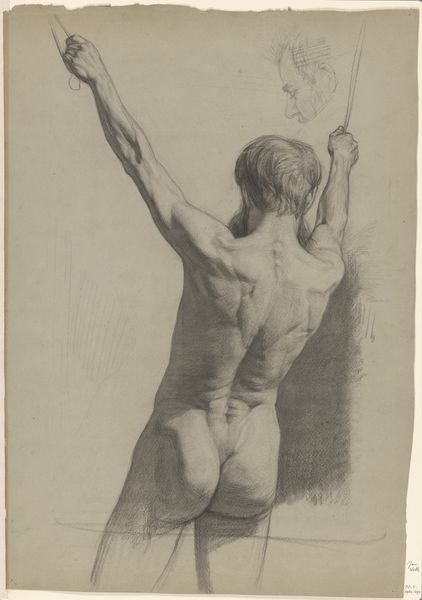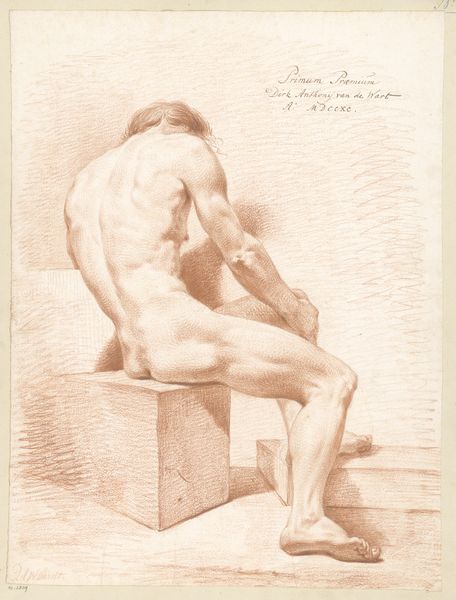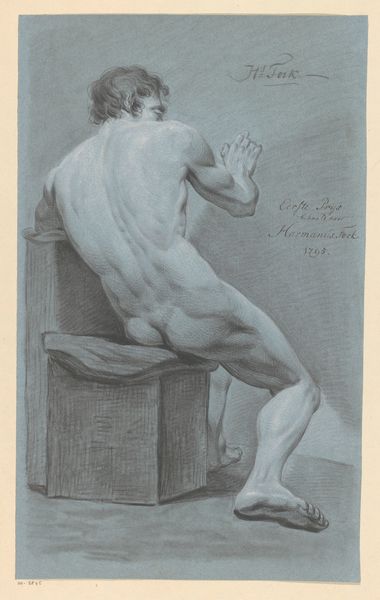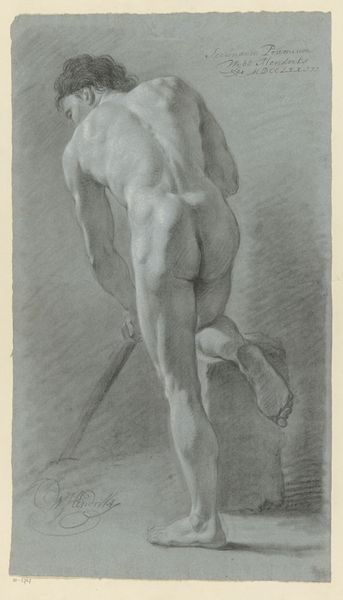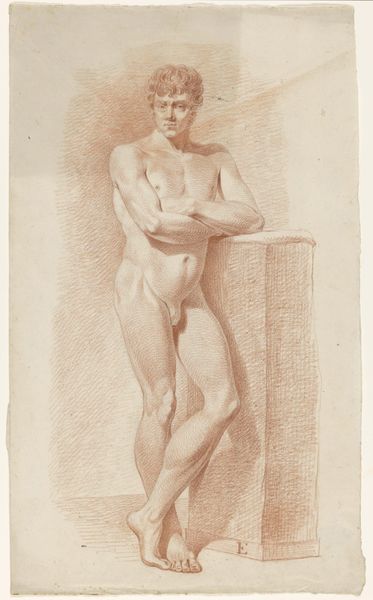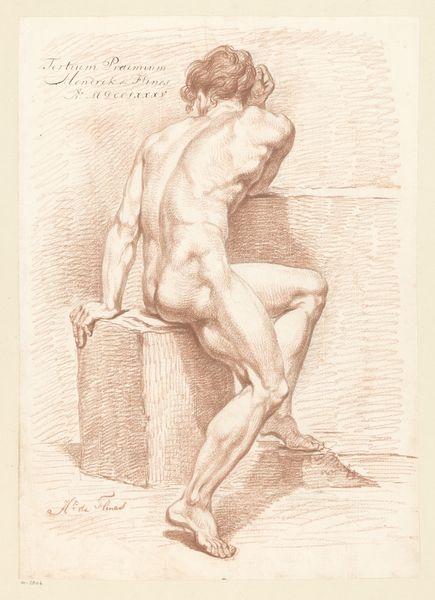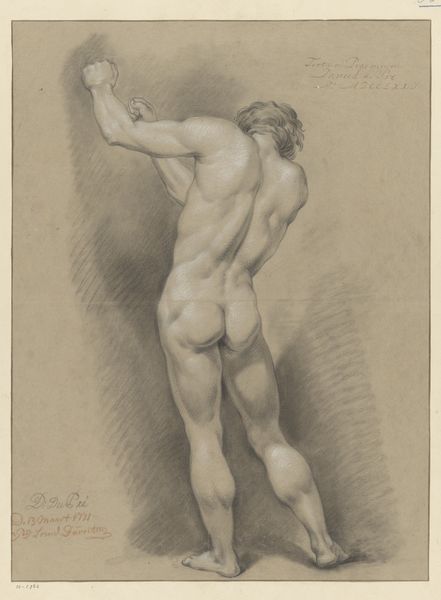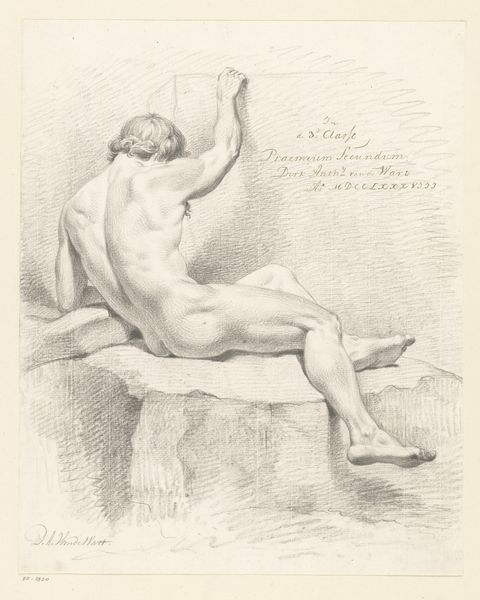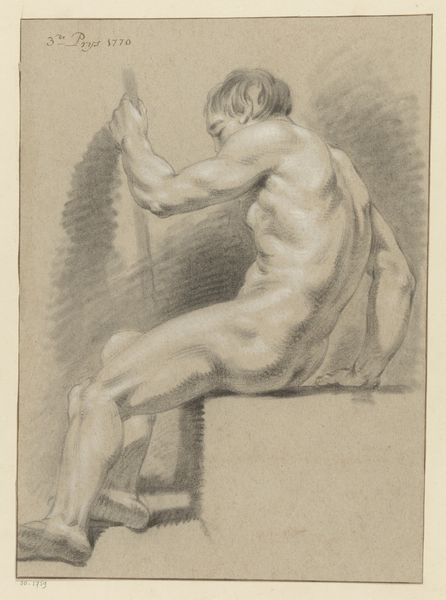
drawing, pencil
#
drawing
#
neoclacissism
#
charcoal drawing
#
figuration
#
pencil drawing
#
pencil
#
line
#
portrait drawing
#
history-painting
#
academic-art
#
nude
Dimensions: height 565 mm, width 336 mm
Copyright: Rijks Museum: Open Domain
Jan Philip Reuthel Junior produced this red chalk drawing of a nude male in 1799, and it won first prize. The image’s formal qualities and social context tell us a great deal about artistic training at the time. The Netherlands in the late 1790s was in turmoil, with revolution brewing. Amidst this change, it is interesting to consider the type of art that was being promoted and rewarded in academic institutions. This drawing reveals the importance of the male nude in artistic training, but it also shows us how the artist learned to create his image. Note the careful cross-hatching and attention to musculature, the standard representational techniques that were valued in the late 18th century. If we want to understand the role of this drawing, further research would be needed. We can look at archival material from art schools, and perhaps also study the biographies of artists, to understand how art was taught and what kinds of social roles it played.
Comments
No comments
Be the first to comment and join the conversation on the ultimate creative platform.
